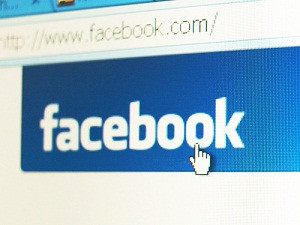
Following widespread reports of Facebook profile cloning over the past few days, the social network giant yesterday introduced verified pages and profiles.
The feature will make it easier for Facebook users to find brands, high-profile celebrities and even government officials.
Verified accounts on Facebook will be indicated through a small blue checkmark right next to the user's page, similar to the one that Twitter uses. The mark will also show up in the search results.
Not everyone can have their accounts verified though, as Facebook explains: "We verify profiles or pages to help you be sure that they are who they claim to be. Keep in mind that not all authentic profiles and pages are verified and that you can't request to have your profile or page verified."
Threat of the clone
A widespread Facebook profile "cloning" attack had South African users up in arms over the past week. The cyber attackers create duplicate accounts using the same profile picture, name and details as the victim.
Using this fake account, the attacker then sends out friend requests to the victim's existing friends. Once accepted, money or any kind of personal information is requested from the friend.
Fuseware CEO Mike Wronski says cloning is made easier for cyber attackers as some Facebook details are public, such as your profile picture, cover photo and name. "Many people also have moderate privacy settings, so many profiles have more intimate details such as location, gender and status updates publicly available."
He adds this is especially deceptive since the scam typically involves some kind of emergency situation. "People often then rush into helping their friend without further questioning."
Wronski warns the scam can potentially work off the most basic of public information. "It poses a risk to anyone who does not verify that their friends are legitimate. With that said, one should lock down their profile by disabling public access to their personal details, wall posts and friends lists through Facebook's privacy settings."
He says the verification system does offer protection to Facebook users. "Once you have verified your account with Facebook, you get access to features including your own custom Facebook URL. Scammers can't duplicate this URL, so it does prevent identity theft to some degree."
Not new
The verification of accounts is not a new concept and was first introduced by Twitter in June 2008.
While verification was originally intended to help distinguish between real and fake celebrity accounts, it is now also being used to verify accounts of businesses and public figures that don't necessarily tweet, but want to keep control over the account.
Last month, the Associated Press account was hacked by the Syrian Electronic Army, which tweeted that US president Barack Obama had been injured in a blast.
Twitter took notice of the hack and subsequently introduced a new two-factor authentication. Tech analyst Liron Segev explains how it works: "When you sign into Twitter, it will send you an SMS with a second password. Once you enter that password, it will allow you in. So, much like the banking system, if someone does manage to get a hold of your Twitter password, they will now need to get your SIM card too for that second password."
Facebook is also rumoured to follow in Twitter's hashtag footsteps. Earlier this month, Inside Facebook reported that a developer pointed out the mention of the word "hashtag" in Facebook's Javascript.
Share